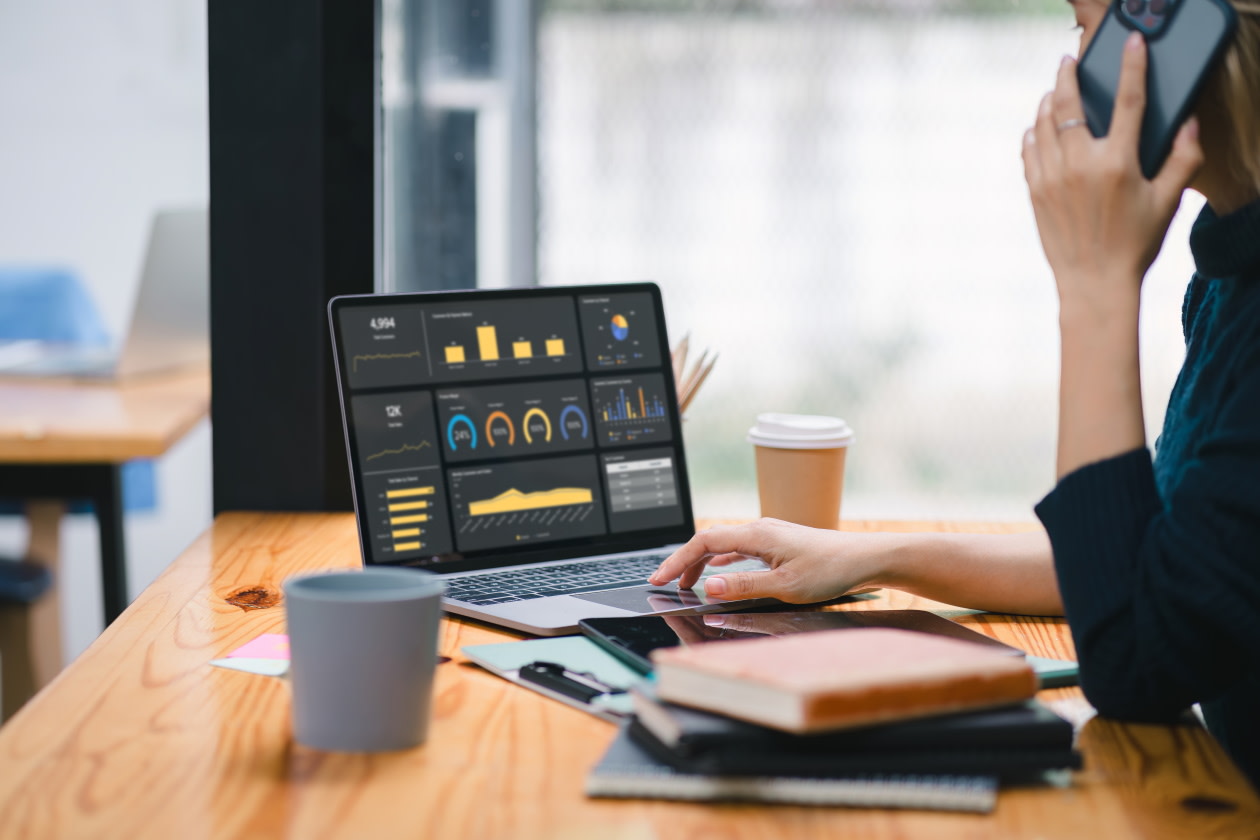The first half of 2024 has given investors a lot to think about.
Interest rates have stayed close to 20-year highs in many of the world’s biggest economies. And where they have come down, it hasn’t been by much. Inflation’s fallen, but not quickly, and not to the levels that some would like.
Around half the globe’s population is preparing to or has already gone to the polls in the biggest election year in history.
The gold price spiked to an all-time high and droughts in many parts of the world have sent some agricultural commodity prices (like coffee and cocoa) soaring.
Add to this a backdrop of geopolitical tension, and you’d be forgiven for thinking that investors must have had a pretty tricky start to the year.
In reality, stock markets have soared, practically ignoring the changing world around them.
Bonds have been weaker, as you might expect during periods of strong investor confidence and rising share markets.
So how have our funds to watch for 2024 performed so far?
Remember six months is a very short timeframe, and all of these funds are designed to be held for the long term (at least five years).
Investing in these funds isn’t right for everyone. Investors should only invest if the fund’s objectives are aligned with their own, and there’s a specific need for the type of investment being made.
Investors should understand the specific risks of a fund before they invest, and make sure any new investment forms part of a diversified portfolio.
This isn’t personal advice or a recommendation to invest. Remember, all investments and any income they produce can fall as well as rise in value – you could get back less than you invest. Past performance isn’t a guide to future returns. If you’re not sure an investment is right for you, ask for financial advice.
Artemis Corporate Bond
The fund aims to generate a combination of income and growth over the long term and could form part of a diversified bond portfolio or diversify a share-focused portfolio.
The investment process blends 'top down' macro-economic research with 'bottom up' fundamental analysis of individual companies' bonds.
Over the first six months of 2024 Artemis Corporate Bond has performed well, rising 0.65%*.
This is ahead of a broad sterling corporate bond benchmark, which was more or less flat over the period, and also ahead of the sterling corporate bond peer group, the median of which rose 0.55%.
While it’s not been an easy time for bond markets, some of the bonds held by the fund, particularly in the financials and real estate sectors, helped returns in the first half of the period. Of course, past performance isn’t a guide to future returns.
Overall, we still think the fund could be a good choice as part of a portfolio with a long-term view or a portfolio built for income. It should also give some diversification in a portfolio focused on shares. But be aware it could be more volatile than other bond funds.
The fund can use derivatives and invest up to 20% in high-yield bonds, both of which add risk.
30/06/2019 To 30/06/2020 | 30/06/2020 To 30/06/2021 | 30/06/2021 To 30/06/2022 | 30/06/2022 To 30/06/2023 | 30/06/2023 To 30/06/2024 | |
|---|---|---|---|---|---|
Artemis Corporate Bond I Acc GBP | N/A | 7.28 | -13.08 | -3.71 | 12.24 |
IA Sterling Corporate Bond TR | 5.73 | 3.40 | -13.07 | -4.90 | 10.61 |
Troy Trojan
Rather than trying to shoot the lights out, the fund aims to grow investors' money steadily over the long run, while limiting losses when markets fall.
The managers have tended to focus on companies based in developed markets, like the US and UK. This includes some of the world's best-known companies with highly recognisable brands.
Over the six months to the end of June, Troy Trojan returned 3.88%*.
One of the biggest contributors over the period was the fund’s gold holdings. At the end of June the fund had 12.40% invested in gold (through Exchange Traded Funds).
Given the sharp rise in the gold price over the period, this investment has once again proved its worth in the fund. The shares in the fund also generally performed well.
While stock markets have had a great start to the year, we still think it makes sense to have at least one fund in a portfolio with a more defensive mindset.
The diversification from both government bonds and gold has the potential to smooth returns in multiple market environments. And given everything going on in the world right now, it’s not unthinkable stock markets could weaken at some point this year.
We think the fund could form the foundation of a broad investment portfolio, bring some stability to a more adventurous portfolio, or provide some long-term growth potential to a more conservative portfolio.
The manager has the flexibility to invest in smaller companies, which, if used, adds risk. The fund also operates a concentrated portfolio so each investment can contribute significantly to overall returns, which can also increase risk.
30/06/2019 To 30/06/2020 | 30/06/2020 To 30/06/2021 | 30/06/2021 To 30/06/2022 | 30/06/2022 To 30/06/2023 | 30/06/2023 To 30/06/2024 | |
|---|---|---|---|---|---|
Trojan X Accumulation | 7.69 | 8.49 | 1.63 | 0.93 | 6.19 |
Fidelity Global Dividend
Fidelity Global Dividend has the whole global universe to pick from. However, it purposefully invests in companies the manager thinks has predictable revenue streams that can keep growing and provide investors reliable dividends.
A focus on valuations and income means the fund is very exposed to Europe and the UK. This also means it’s typically less exposed to the US market when compared to a global benchmark.
We’re wary of the fund’s overweight in Europe, given the macroeconomic backdrop. But from a valuation point of view the market looks ‘cheap’ compared to its long-term history.
The manager can invest in derivatives and smaller companies which adds risk.
Over the six months to the end of June the fund returned 6.85%. While this was behind the MSCI AC World index return of 12.52%, it was slightly ahead of similar funds in the IA Global Equity Income sector. The average return for these types of funds over the six months was 6.79%.
The main reason for the underperformance relative to the benchmark was the lack of exposure in the US. At the end of May (the latest available data), the fund had under a third invested in the US. This compares to the benchmark with just under 65% in the US.
The fund’s dividend yield is 2.76% (as at 31 May 2024) – but remember, yields are variable and not a reliable indicator of future income.
Given the likelihood of growth slowing in many developed markets, the income this fund provides could help cushion the blow if stock markets do fall.
We expect the fund to perform better than most global funds when markets are falling. However, this fund has typically lagged its global peers when markets have risen.
We think this fund could provide a portfolio with some much-needed shelter and income should markets become volatile. The fund takes charges from capital, which can increase the yield, but reduces the potential for capital growth.
30/06/2019 To 30/06/2020 | 30/06/2020 To 30/06/2021 | 30/06/2021 To 30/06/2022 | 30/06/2022 To 30/06/2023 | 30/06/2023 To 30/06/2024 | |
|---|---|---|---|---|---|
Fidelity Global Dividend W Acc | 4.99 | 10.35 | 0.33 | 9.89 | 13.66 |
IA Global Equity Income TR | -2.51 | 21.58 | 0.96 | 9.14 | 12.98 |
MSCI AC World TR GBP | 5.72 | 25.1 | -3.73 | 11.89 | 20.61 |
Artemis Income
The fund invests in companies that the managers think can pay a sustainable income through the market cycle, regardless of the economic backdrop. It’s mainly made up of large UK-listed businesses, though there are some holdings in medium-sized and overseas companies too.
The fund has a dividend yield of 3.56% (as of 8 July 2024) – but remember, all yields are variable and not a reliable indicator of future income.
Over the six months to the end of June Artemis Income returned 9.16%*. This isn’t just a great return for six months in absolute terms, but it was ahead of the broader UK market, compared to the FTSE All-Share index, which rose 7.43% in the same time.
Despite its recent good run, the UK is still out of favour with a lot of investors, but we expect it to stay an attractive market for income-seeking investors. It continues to be one of the highest yielding stock markets.
We think the fund could work well alongside other asset classes as part of an income-focused portfolio or could complement other regional equity income funds. The fund takes charges from capital, which can increase the yield, but reduce the potential for capital growth.
30/06/2019 To 30/06/2020 | 30/06/2020 To 30/06/2021 | 30/06/2021 To 30/06/2022 | 30/06/2022 To 30/06/2023 | 30/06/2023 To 30/06/2024 | |
|---|---|---|---|---|---|
Artemis Income I Acc GBP | -10.7 | 23.18 | -0.21 | 8.24 | 18.4 |
FTSE All-Share TR | -12.99 | 21.45 | 1.64 | 7.89 | 12.98 |
iShares Emerging Markets Equity Index
Emerging markets have grown fast in recent decades. As young economies, they tend to offer greater growth opportunities than the west. But this does come with higher investment risk and more volatility.
India and China form a large part of the emerging market universe. In 2023 these two stock markets moved in opposite directions, and by a large amount. 2024 has continued to see quite different performance from these countries.
Over the first six months of the year, the Chinese market rose 5.71%*, while the Indian market rose 18.10%. This only serves to underscore how important asset allocation decisions can be in emerging markets. Fund managers are divided on whether this diversion will continue or reverse.
To reduce the risk of being on the wrong side of this call, we still feel a passive option here could be a good choice for the rest of the year.
iShares Emerging Markets Equity Index invests in a broad spread of companies across emerging countries, like China, India, Brazil, South Africa and Taiwan.
Sector wise, it invests in companies like TSMC, the world’s biggest semiconductor manufacturer and HDFC, one of India’s leading private banks. But some smaller companies do feature which can add risk.
The fund returned 8.93% over the first six months, marginally behind the benchmark.
As a tracker fund, it just aims to track the performance of the broader emerging stock market, instead of trying to outperform it. It’s one of the lowest-cost options to invest in emerging markets and could help boost long-term growth potential – with some volatility along the way though.
June 2019 To June 2020 | June 2020 To June 2021 | June 2021 To June 2022 | June 2022 To June 2023 | June 2023 To June 2024 | |
|---|---|---|---|---|---|
iShares Emerging Markets Equity Index (UK) H Acc | -0.18 | 22.25 | -10.40 | -3.43 | 12.66 |


